Honoring Five Inspiring Health Sciences Educators
For Women in Medicine Month, we highlight five educators who are preparing the next generation of Health Sciences professionals.
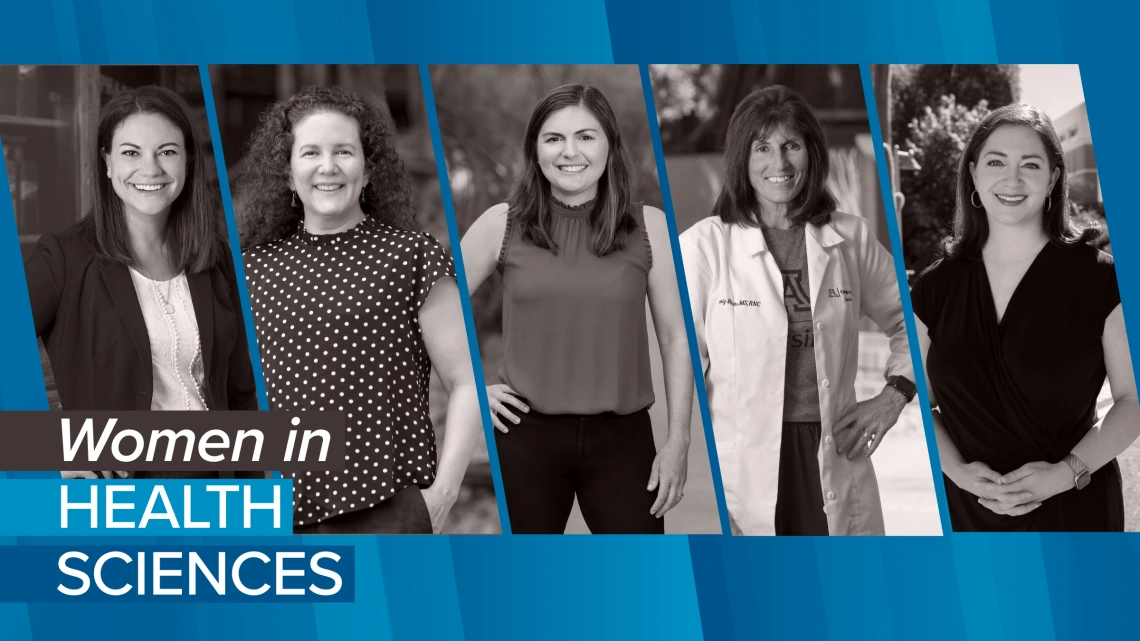
Each September, the American Medical Association Women Physicians Section honors physicians who have offered their time, wisdom and support to advance women with careers in medicine. This year, Health Sciences is honoring five women who are making an impact on the next generation of women in health care by dedicating their time to teach.
Each of these women has received a teaching award from their home college. What inspires them to create the next generation of leaders?
Leila Barraza, JD, MPH
2021 Online Faculty Excellence in Teaching Award
Mel and Enid Zuckerman College of Public Health
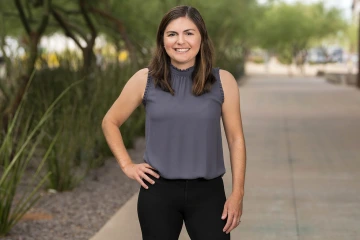
Leila Barraza, JD, MPH
What inspired you to go into education?
I have been fortunate to have had amazing professors and mentors in my educational and professional career that motivated me to want to teach and mentor students myself. It is so rewarding to be able to work with students and witness them promote and develop their passions for a field.
What is your favorite part of teaching?
I teach a public health law and ethics course, and for most students, this may be their first introduction to public health law. I want to ensure that they can use the knowledge they’ve gained from the course in their future careers. My favorite part of teaching is hearing from past students when they are excited to share how they’ve utilized something they learned in the course in their internships or jobs.
What is one of your professional teaching goals?
To continue to adapt to new teaching methods, including keeping up to date on methods to engage students through various course activities.
Beverly Bias, MS, RNC
2022 Excellence in Teaching Award
College of Nursing
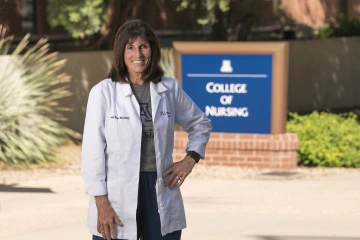
Beverly Bias, MS, RNC
What inspired you to go into education?
I was working in the neonatal intensive care unit as a clinical nurse educator, teaching nurses how to provide best practices for positive neonatal outcomes. I learned that I was passionate not only about teaching nurses, but also educating parents. I then completed a certification program to teach nursing education, as well as a Master of Science in Healthcare and Nursing Administration.
What do you love about teaching?
Making a difference in the lives of others. I am proud to work side by side with multiple registered nurses that I previously taught. It is rewarding to witness growth.
What is one of your professional teaching goals?
To continue to be a lifelong learner.
Ashley Campbell, PharmD, BCPS
2022 Clinical Science Educator of the Year
2022 Faculty Preceptor of the Year Award
R. Ken Coit College of Pharmacy
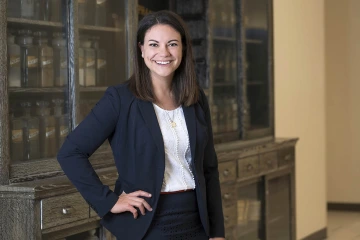
Ashley Campbell, PharmD, BCPS
What inspired you to go into education?
My earliest experiences with teaching were when I was in high school working as a snowboarding instructor. As one of very few women teaching snowboarding at the time, I took great pride in instilling confidence in young girls learning something outside of their comfort zones and quickly realized that I could have a similar impact on my learners and patients in the pharmacy setting. It also helps that some of the most influential family members of my formative years were educators.
What is your favorite part of teaching?
My favorite part of teaching is that I can leverage my creativity in the classroom to make learning complex topics fun. I’m also in a unique position where I not only get to engage with our students across all four years of our Doctor of Pharmacy (PharmD) curriculum, but also precept our pharmacy residents on their internal medicine rounding rotations at Banner – University Medical Center Tucson. Some of my most memorable teaching moments involve precepting our former students during their residency training who are practicing independently and looking back on how far they have come since their first semester of pharmacy school.
What is one of your professional teaching goals?
I am very passionate about evidence-based teaching. I hope to conduct more scholarship of teaching and learning (SOTL) in my own courses to better inform my teaching and make my classroom the most effective that it can be. I was recently awarded the American Association of Colleges of Pharmacy New Investigator Award to conduct SOTL in my third-year therapeutics course, and I look forward to future projects of this variety.
Tara Carr, MD
2022 Graduate Medical Education Excellence Award
College of Medicine – Tucson
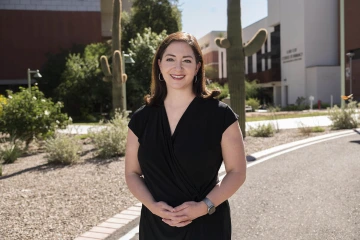
Tara Carr, MD
What inspired you to go into education?
My parents were both teachers, so I know firsthand how important, challenging, and rewarding it is to take on the responsibility of teaching others. I actually couldn’t imagine a career in medicine that did not include teaching. I am very passionate about my field – allergy and immunology –and I relish the opportunity to share all of the amazing patient care and research opportunities in this field with others.
What is your favorite part of teaching?
Our fellowship program is small, so I get to spend a lot of time with each of our fellows. I love watching each fellow grow – starting with excitement, adding in deeper knowledge of each disease, connecting to the underlying immune mechanisms, becoming more confident with complex treatment recommendations, and then distilling that all into a patient-centered clinic visit. The absolute best part is when a patient pulls me aside after a visit to compliment the fellow for their bedside manner, communication, expertise and empathy.
What is one of your professional teaching goals?
I hope that I am a very approachable person. I want learners at every level to feel comfortable asking me questions, and I want our bedside teaching experiences to feel like a collaborative discussion.
Rebecca Fisher, PhD
2022 Stuart D. Flynn, MD, Master Educator Award
College of Medicine – Phoenix
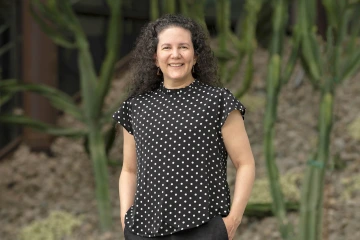
Rebecca Fisher, PhD
What inspired you to go into education?
I was inspired to become an anatomy professor during graduate school. I was studying paleontology at the time, but I found my calling when I took an anatomy course with medical and physician assistant students. My father had recently been diagnosed with cancer, and I had gained a newfound appreciation for the critical role that physicians play in supporting patients and their families. It became very clear to me that I wanted to dedicate my career to training future health care professionals.
What is your favorite part of teaching?
Getting to know my students and supporting them as they face and overcome challenges. My most memorable moments have been when alumni return to teach in the anatomy laboratory. It’s inspiring to see them sharing their knowledge with the next generation of physicians.
What is one of your professional teaching goals?
Fostering empathy. Working with the willed body donors in the anatomy lab is a transformative experience, and we encourage students to reflect on their own feelings about mortality and how they will support patients and their families when they are most vulnerable.

